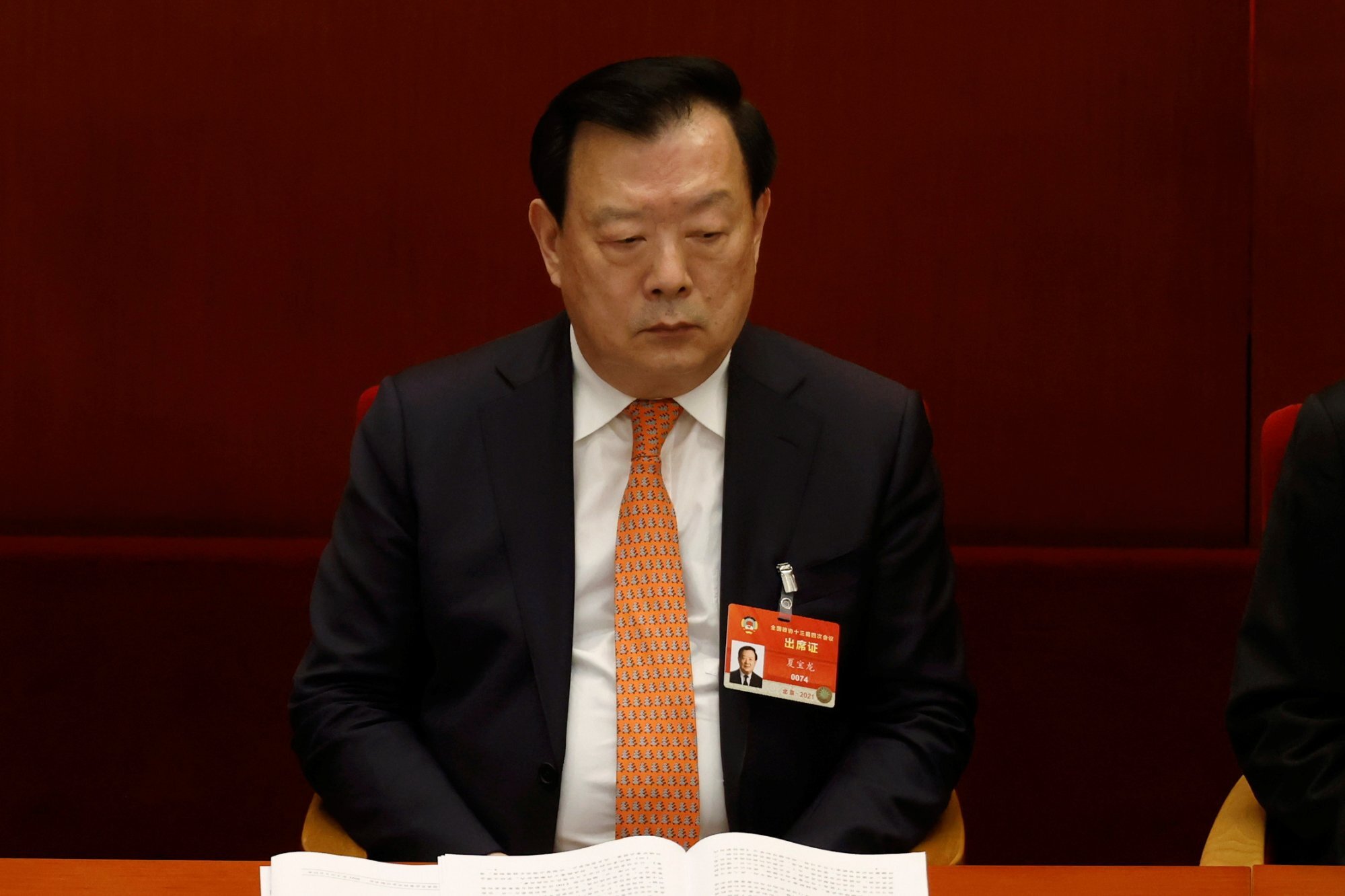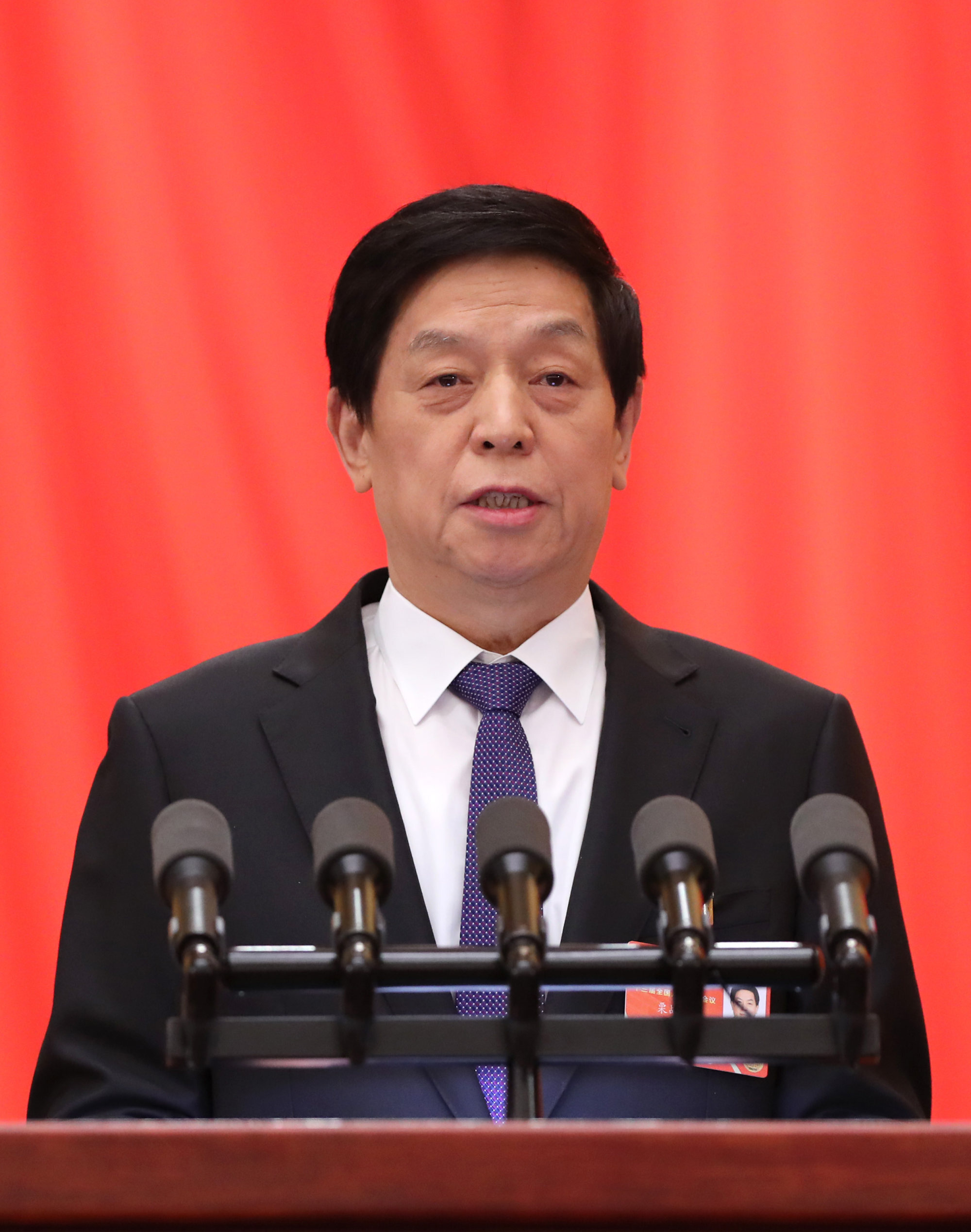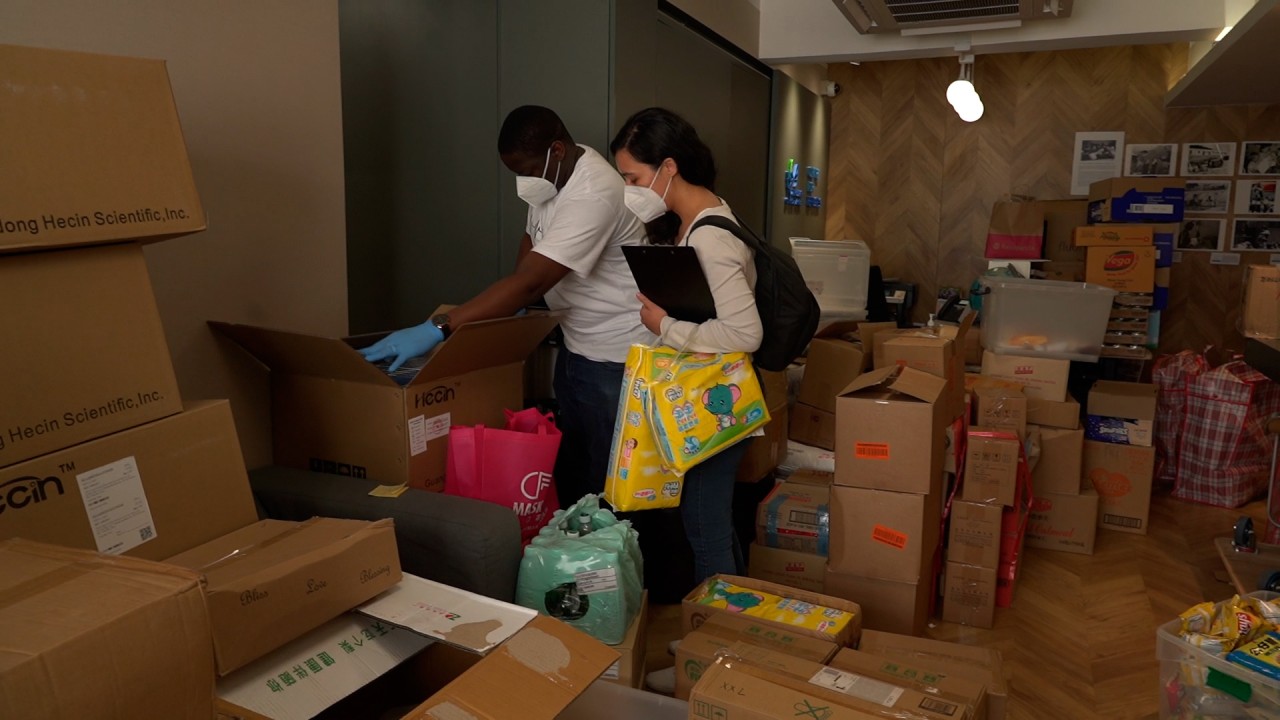
‘Two sessions’: top state official says Hong Kong’s high degree of autonomy won’t be undermined by central government, cites Beijing’s insistence on accountability for city’s Covid crisis
- The director of the Hong Kong and Macau Affairs Office told a group of local delegates to the nation’s top advisory body that the ‘one country, two systems’ model would persist beyond 2047
- On Tuesday, another top official had pledged to ‘improve’ Beijing’s system for exercising ‘comprehensive jurisdiction’ over the city, raising questions about the future of the governing principle
Mainland China’s firm support and insistence on accountability for Hong Kong in its Covid-19 battle has shown that the city’s “high degree of autonomy” will not be undermined by the central government’s jurisdiction, a top Beijing official has said.
Xia Baolong, director of the State Council’s Hong Kong and Macau Affairs Office, stressed that local authorities must shoulder the main responsibility for battling the epidemic, but added Beijing did not blame Hong Kong for the crisis.
Instead, the central government has joined hands with various mainland provinces to support the city, according to Xia, who said he believed that everyone involved in the struggle would “see the rainbow after the storm”.
The senior mainland official made the remarks on Wednesday at a meeting in Beijing with Hong Kong delegates to the Chinese People’s Political Consultative Conference (CPPCC), the nation’s top advisory body.
Beijing to ‘improve’ system for ruling Hong Kong, devise new ‘legal weapons’
Xia reassured the delegates that Beijing would maintain a steady supply of food and other necessities to Hong Kong, adding that the mainland had sent 900 million yuan (US$142.44 million) worth of supplies to the city.
According to the state leader, the central government’s determination to implement the “one country, two systems” principle has remained unswerving.
He said that the city would continue to be governed under the one country, two systems principle, and keep its common law and judicial systems beyond 2047, half a century after its return from British rule in 1997.
A day earlier, Li Zhanshu, chairman of China’s top legislature, the National People’s Congress, had pledged to “improve the system under which the central government exercises its comprehensive jurisdiction over the special administrative region” in the coming year, raising questions as to whether Hong Kong’s semi-autonomous status could be undermined by such an overhaul.
Delegate Dr Ko Wing-man, a former Hong Kong health chief, said Xia told them on Wednesday there was no need for concern.
“He said that Beijing’s determination to enforce one country, two systems was unswerving. The central government always considers what the best for Hong Kong is, and while Beijing enjoys comprehensive jurisdiction over the city, it would only act when necessary and when the city is faced with real difficulties,” Ko said.

CPPCC member Eliza Chan Ching-har also said Xia had told the delegates on Wednesday that the central government’s leadership would not replace Hong Kong’s high degree of autonomy.
“The central government has the responsibility to give guidance and advice on issues relating to Hong Kong’s stability and security,” she added.
“He also said that there will be no change to one country, two systems and the common law system after the first 50 years.”
Chan added that Xia had said governance model had been a success for the past 25 years, as it had allowed Hong Kong to remain an important global financial hub.
On the subject of support for containing the city’s recent outbreak, Chan said Xia had cited many figures on supplies sent from across the border through “sea, rail and road”.
“Many mainland provinces and cities also wanted to send personnel and supplies to help,” she said.
Another delegate, Thomas Pang Cheung-wai, said Xia had guaranteed that during the fifth wave, food supplies to Hong Kong would be “more sufficient than before”.
“[Xia] said that’s because we are one family,” Pang said.
He added that during the two-hour meeting, Xia also said even as mainland experts and officials were supportive of Hong Kong’s pandemic efforts, locals politicians must do their job.
“The central government officials will only give general instructions and will not get directly involved in the city’s administration,” he said. “The Hong Kong government must take up the main responsibility.”
Delegate Thomas So Siu-tsung, a former Law Society president, added that the top mainland official had told them that Beijing did not blame Hong Kong for its current health crisis.
“He said that last month, after Beijing noticed that the epidemic situation would undermine Hong Kong’s stability, officials set up a 200-strong team in Shenzhen to help and offer support,” So said.
The delegate said Xia had also cited the social unrest in Hong Kong in 2019 as another example of Beijing’s past intervention to preserve the city’s well-being.
“He said the central government stepped in at a critical juncture, but not through force or the local garrison. It relied on the law, legislation and Hong Kong police to solve the crisis,” he said.
Another delegate, who spoke on condition of anonymity, said Xia had contrasted the mainland’s support for Hong Kong with the involvement of Western countries in the Ukraine crisis.
“He indicated the West was only provoking the situation by sending supplies to Ukraine,” the delegate said, adding that Xia had argued that the mainland’s help for Hong Kong was positive.

Pang said that in his concluding remarks, Xia also noted the principle of ‘patriots administering Hong Kong’ was essential for the continuation of one country, two systems and for Beijing’s comprehensive jurisdiction to be exercised.
Ko added that to further ensure the city’s governance by patriots, Xia had urged the delegates to step up the training of more politicians who have the talent and capability to lead Hong Kong.
Delegate Chan said national security expert Wang Linggui, a new deputy director of the State Council’s Hong Kong and Macau Affairs Office, also attended the meeting on Wednesday, and gave a speech on one country, two systems, and how patriots should be proactive in helping the city to overcome its Covid-19 outbreak.
Nine other delegates, and former Hong Kong leader Leung Chun-ying, now a vice-chairman of the CPPCC, also gave speeches, she added.
State leader tells Hong Kong politicians to aid government in fixing problems
Under the one country, two systems formula, Hong Kong was to remain a free port, with its capitalist system and certain freedoms unchanged for 50 years.
This July marks the halfway point of that time frame, which ends in 2047.
Hui Ching, a research director at the policy think tank Hong Kong Zhi Ming Institute, said Xia’s remarks showed that Beijing was concerned about foreign and local investors’ confidence in one country, two systems.
“Xia stressed the common law system would not change after 2047. This is a message, especially for international and local businessmen, that no matter what happens in Hong Kong, Beijing remains very serious about its principles,” he said.
Since 2014, Beijing has asserted that while the city retains judicial independence and autonomy over areas such as socio-economic policies, the central government enjoys “comprehensive jurisdiction” over it, especially on matters relating to the constitutional and political order, and national security.
Chinese Premier Li Keqiang on Saturday said for the first time in his annual work report that the central government would “implement its comprehensive jurisdiction over Hong Kong, and firmly enforce the principle of ‘patriots administering Hong Kong’”.
The Hong Kong section of the premier’s annual work report has long been seen as an important indicator of the approach Beijing will take towards the city.


